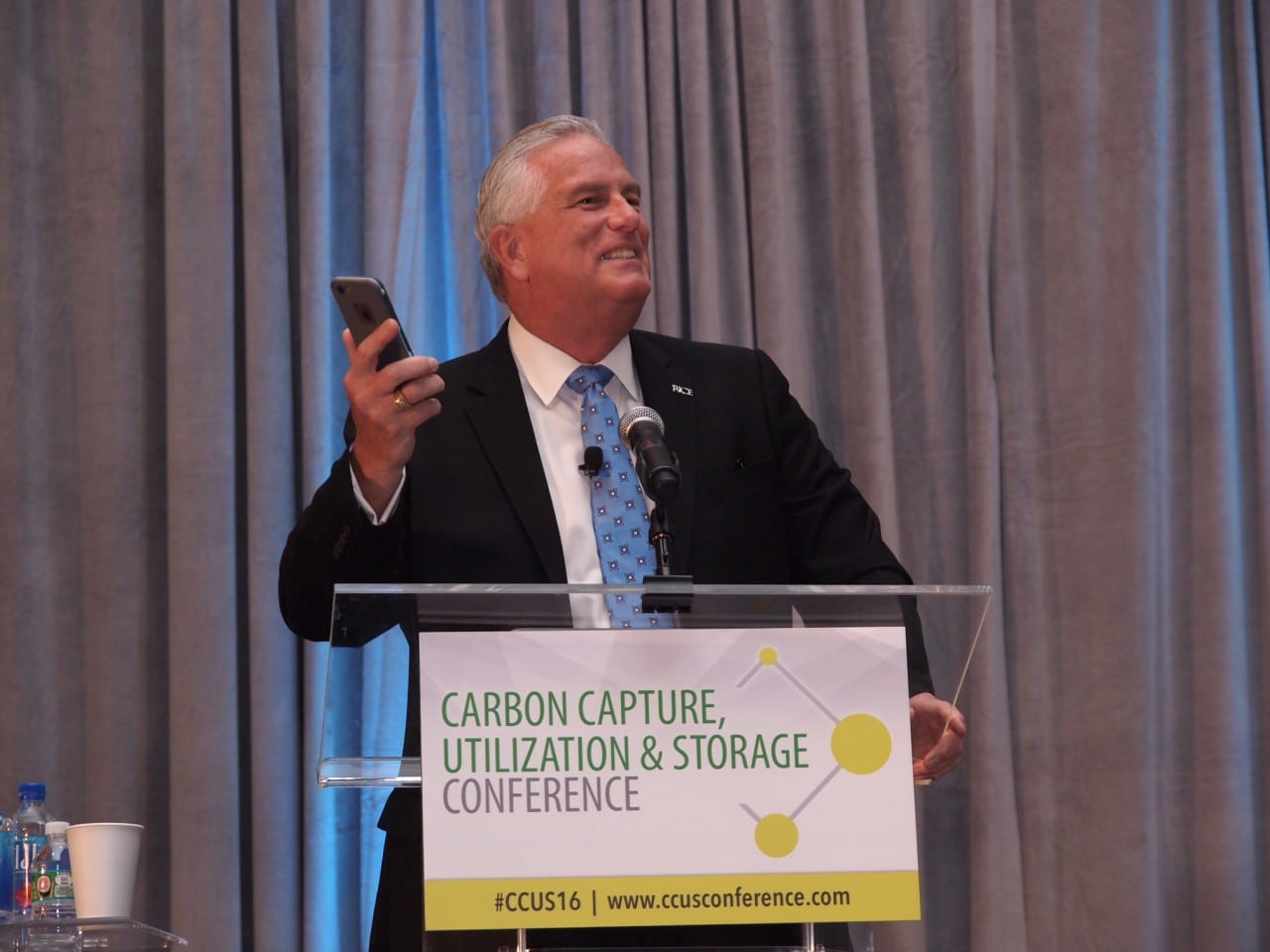
Pursuing carbon capture and storage without a utilization component is a fool’s errand, former Assistant Secretary of Energy for Fossil Energy Charles McConnell said Tuesday.
“I’m going to ask you to stop wasting time on CCS,” he told attendees at the opening session of the ExchangeMonitor’s annual CCUS Conference, taking place this week in Tysons, Va. “Stop wasting your time on a waste disposal model that’s too expensive and it’s never going to happen.”
McConnell instead preached a message of increased utilization as the future of CCS. “Spend your time on CCUS, find a way for the CO2 to create economic value, and keep it safely and permanently stored so that we can impact the climate and impact our economy and create value,” he said.
The world is going to continue using fossil fuels, even if the United States does eventually wean itself away from them. In a carbon-constrained future in which nations work to limit global temperature rise, few technologies are more important than CCS, according to McConnell, who has served as the executive director of the Energy and Environment Initiative at Rice University since shortly after his departure from DOE in 2013.
Something has to be done about carbon emissions, that much is true, but current actions toward that goal in the form of economically dubious regulations are not going to cut it, McConnell asserted. Instead, he said, innovation is key: “My belief is that we have a responsibility to do something about the climate but we don’t have a responsibility to ruin our economy, to challenge our own energy security, to turn ourselves upside down thinking about something in a totalitarianism type framework.”
McConnell cited the Environmental Protection Agency’s Clean Power Plan, which requires states to develop action plans to meet federally set emissions reduction goals. The CPP will have a negligible effect on global temperature and will not inspire other nations to take action, as the administration has suggested, McConnell said. “Why do we think the rest of the world is so dumb that they’re going to follow something we’re doing that doesn’t do anything and embrace it as leadership?” he said.
With U.S. policy falling short, the answer is CCUS with a focus on using CO2 for enhanced oil recovery, McConnell said.
EOR has been treated as a niche technology, a pathway to the eventual wide-scale deployment of sequestration-only CCS, McConnell said, proclaiming that sort of thinking as “balderdash.”
“If you can take the CO2 and make chemicals, if you can put it in the ground and produce oil, and you can create another revenue stream and value chain that’s going to actually be accretive to the project, I believe you can beat the pants off of renewables all day long,” he said.
The core problem with CCS sans-utilization is that CO2 in that model is a waste product – there is no direct benefit to the populace from having a CCS project next door. “Is CCS a waste disposal model? Yes it is, modeled very much around the whole nuclear industry, and 20 years ago we saw that as the pathway going forward. I think we’ve learned a tremendous amount in the last 20 years and have learned the same thing that people in the nuclear industry have learned. You don’t bury waste in people’s backyards,” McConnell said.
On the flip side, EOR offers the ability to make people’s lives better in the short term by finding a valuable use for CO2 while also working over the long term to address climate change, he said.